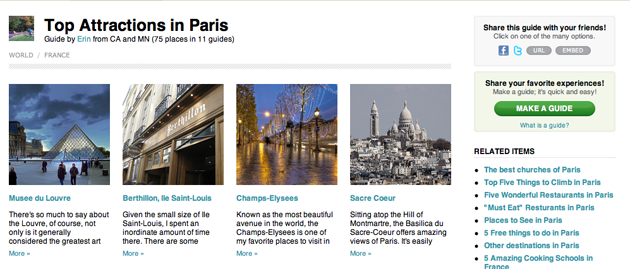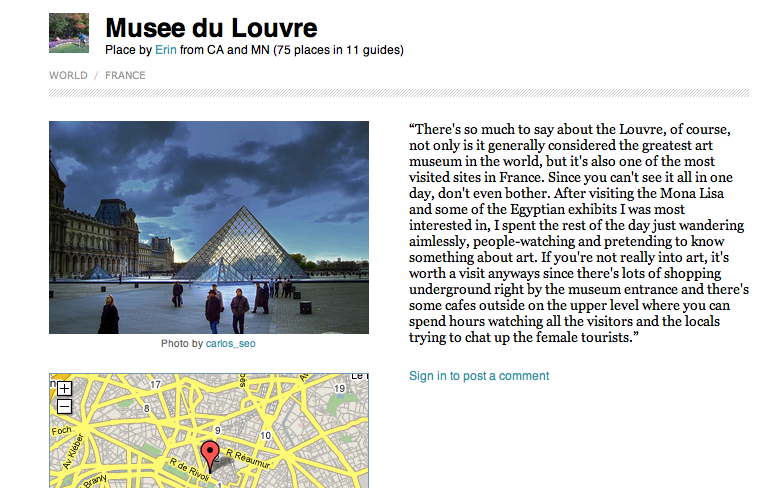Travel guides are a dime a dozen on the web. But for the most part, they’re not very conducive to really exploring – it’s not much fun to click through various guides to get a feel for where you’d like to visit, because each guide is loaded with a wall of text. Ruba, a new travel site that launches today, is looking to offer users a way to visually browse through cities and their attractions around the world, offering photo-rich guides and an emphasis on making it easy to quickly discover new locations.
The site is headed by Mike Cassidy, who has founded a number of successful companies, including Xfire, which sold to Viacom in 2006 for $102 million. Cassidy says that his team has worked to create a very clean site that is very snappy and easy to casually browse through, with a strong technical emphasis placed on search. Rather than ask users to tag the guides they create, the search engine identifies keywords in their descriptions and titles. And while this can be prone to false positives, in the demo I saw it seemed to work quite well (a search for ‘kids london’ resulted in guides like “Top 5 Things To Do With Kids In London” and “The London Aquarium”).
Guides are all written and submitted by users, with Ruba pulling from Google and Flickr APIs to help pinpoint locations and provide some sample photos (users can submit their own, too). Cassidy says that users have been building guides to both serve as references for others, and also as a way to chronicle their own trips (which other users can in turn benefit from).

Travel is a tough space to break into, with well established sites like TripAdvisor dominating user review submissions and countless smaller sites looking to find their niche. From the get-go, Ruba is looking to spread virally. The site features integration with Twitter and Facebook Connect, allowing users to broadcast where they’re headed and ask friends for input (I think this will work especially well on Facebook, as items will appear in users’ News Feeds).
The biggest question about the site’s viability is the fact that everything is user-submitted, including the blurbs about each location. If the site can build a strong community as Yelp and Flickr have, then this won’t be an issue. But if people frequently visit the site and can’t find the city or attraction they’re looking for, they won’t be likely to submit their own guides (it’s the chicken and the egg problem all over again). That said, I suspect that many people will enjoy building their own guides. Trip Advisor may have a larger community, but there’s a certain appeal to being able to stamp your name on your guide, embedding it in your blog and sharing it with friends so your thoughts don’t get lost in the shuffle.

